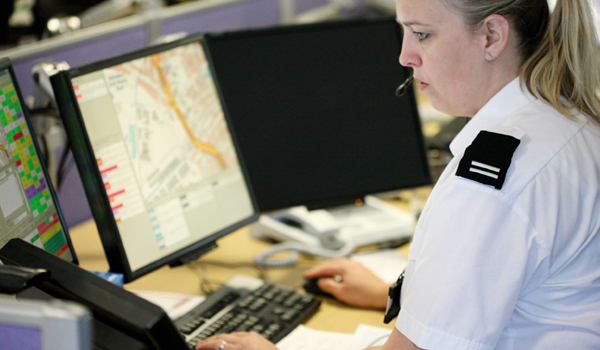Video game-style training for crisis incident management
British Transport Police has helped to develop a virtual reality training system that will prepare emergency services personnel and airport staff for crisis situations. The train-on-demand simulation platform adapts advanced video games technology to train first responders and crisis managers to prepare for incidents such as train and plane crashes and terrorist attacks.

British Transport Police has helped to develop a virtual reality training system that will prepare emergency services personnel and airport staff for crisis situations. The train-on-demand simulation platform adapts advanced video games technology to train first responders and crisis managers to prepare for incidents such as train and plane crashes and terrorist attacks.
Emergency personnel at sites such as airports currently rely on live training exercises. The problem with live training is that it is infrequent and expensive and planning and coordination requires major efforts (including trainees, instructors, observers and role-players). The virtual reality CRISIS (Critical Incident Management Training System using an Interactive Simulated environment) platform, however, will allow them to prepare for these incidents at the push of a button.
The Middlesex University-led project presents emergency workers with a crisis situation in an interactive virtual world using a complex 3D view of the scene. Trainees navigate through the environment and build up a situation assessment of the incident, which then guides their decision-making process, all the time communicating with fellow trainees as the incident develops in front of them.
CRISIS was funded by the European Commission and developed with 12 partners across Europe, including airports in Portugal and Iceland which are already using the system.
The flexible program can be used by individuals or teams both within the same organisation and across different organisations, and various levels of command, in an immersive multi-player environment. Players interact and communicate with fellow trainees inside the 3D world, regardless of their physical location.
Incidents presented have varying levels of complexity and can be created by training managers. Using the Variable Uncertainty Framework, the scenarios can play out differently every time they are run with the system responding in different ways depending on the trainees actions, with random events occurring in order to test reactions.
Middlesex University Professor of Human-Computer Interaction and Project Coordinator, Dr William Wong, said: Real crisis situations fortunately dont occur frequently, but staging training scenarios to prepare for them is costly and requires a large amount of preparation. When you use a responsive and interactive virtual environment you can train every day and involve others in different locations. For instance, airport staff in Iceland can train with colleagues while stationed in more remote parts of the country.
CRISIS supports three phases planning, training and evaluation.
In the planning phase, training managers can control and plan complex occurrences in the programme ranging from further explosions to the intensity of the rain falling on the accident. Triggers can be set so that if a trainee fails to complete a certain action it can activate a particular consequence.
The emergency services can carry out the training on laptop or desktop computers using a keyboard, joystick, games controller or tablet computer to navigate.
The system is portable and can be set up in a room or in different locations and operated across a secure network. Alternatively, it can be carried out on a powerwall made up of multiple screens to give the trainee a more immersive experience.
CRISIS allows users to get quick and detailed feedback, so they are able to analyse their performance and learn from their reactions.
Features include:
Planner tool enables users to create scenarios including defining conditions that set off events. These triggers can be set by time, event-based, proximity and manual;
Observer tool allows an instructor to observe trainees during an exercise using a tablet computer and freely move around a training room. On this device they can mark trainees performance, take photographs and annotate them, and make comments; and
Evaluator tool allows instructors to explore and sort the data from an exercise. This can be vie





